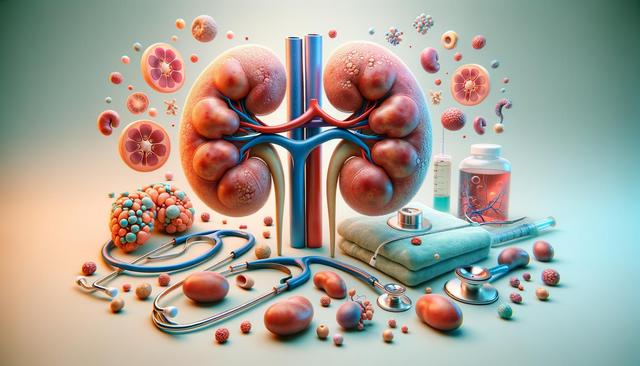Understanding Kidney Disease and Its Impact on Nutrition
Kidney disease affects the body’s ability to filter waste and maintain a balance of fluids and minerals. When kidneys are not functioning properly, waste products and excess fluids can accumulate in the body, leading to various health issues. One of the most significant aspects of managing kidney disease is maintaining an appropriate diet. This involves not only choosing the right types of food but also understanding which nutrients should be limited or avoided altogether. Nutrition needs can vary depending on the stage and type of kidney disease, making personalized dietary planning essential. Working with a healthcare provider or a registered dietitian can help tailor a nutrition plan that supports kidney function and overall health.
Foods to Include in a Kidney-Friendly Diet
While managing kidney disease, it’s important to focus on nutrient-rich foods that are easier on the kidneys while still providing necessary vitamins and energy. Incorporating the right foods can help reduce the workload on the kidneys and delay progression of the disease. Generally, a kidney-friendly diet includes:
- Fresh fruits such as apples, berries, and grapes, which are low in potassium
- Vegetables like cauliflower, cabbage, and bell peppers
- Healthy fats including olive oil and unsalted nuts in moderation
- Whole grains in controlled portions, such as white rice and refined pasta, which are lower in phosphorus than whole grains
- Moderate amounts of high-quality protein sources, such as egg whites and poultry
These foods provide essential nutrients without adding strain to the kidneys. Portion control is also key, as overconsumption can lead to imbalances in minerals like potassium, phosphorus, and sodium.
Foods to Avoid or Limit with Kidney Disease
Just as important as knowing what to eat is understanding what to avoid. Certain foods can exacerbate kidney problems by increasing the levels of waste and fluid that the kidneys must handle. People with kidney disease are generally advised to limit or avoid:
- High-sodium foods such as processed meats, canned soups, and fast food
- Foods high in potassium like bananas, oranges, and potatoes
- High-phosphorus foods including dairy products, nuts, and dark-colored colas
- Red meats and organ meats, which are high in protein and phosphorus
- Foods with added sugars or artificial sweeteners, which may affect kidney health over time
Reading nutrition labels and cooking more meals at home can help individuals manage their intake of these potentially harmful ingredients.
Balancing Protein Intake
Protein is a vital nutrient, but for those with kidney disease, its intake must be carefully balanced. The kidneys play a key role in processing protein waste, so consuming too much can overburden them. However, too little protein can lead to muscle loss and malnutrition. The goal is to consume the right amount based on individual health needs and disease stage. For many people with kidney disease, especially those not on dialysis, a moderate-protein diet is recommended. Good options for protein include:
- Egg whites
- Skinless poultry
- Fish with low mercury levels
- Tofu and other plant-based proteins in limited amounts
Consulting with a healthcare provider can help determine the appropriate protein intake and ensure nutritional needs are being met without overtaxing the kidneys.
Fluid and Mineral Management
Managing fluid intake is another important aspect of living with kidney disease. When kidney function declines, the body may struggle to eliminate excess fluids, leading to swelling, high blood pressure, or fluid in the lungs. Depending on the severity of the disease, fluid restrictions may be necessary. Additionally, certain minerals must be carefully monitored:
- Potassium: High levels can affect heart rhythm; limit foods like oranges, tomatoes, and spinach
- Phosphorus: Excess can weaken bones and harm blood vessels; avoid soda, dairy, and processed foods
- Sodium: Can cause fluid retention and high blood pressure; reduce processed and salty foods
Keeping track of these minerals often requires regular blood tests and dietary adjustments. Staying informed and proactive can greatly improve quality of life and disease management.
Conclusion: Taking Control Through Diet
For individuals living with kidney disease, nutrition is a powerful tool for managing symptoms and slowing disease progression. While dietary changes may seem challenging at first, learning what to eat and what to avoid can make a significant difference in overall health. By focusing on kidney-friendly foods, limiting harmful nutrients, and working closely with healthcare providers, people with kidney disease can take meaningful steps toward better health and improved daily living. Adopting a thoughtful, well-informed approach to eating is not just beneficial—it’s essential.






